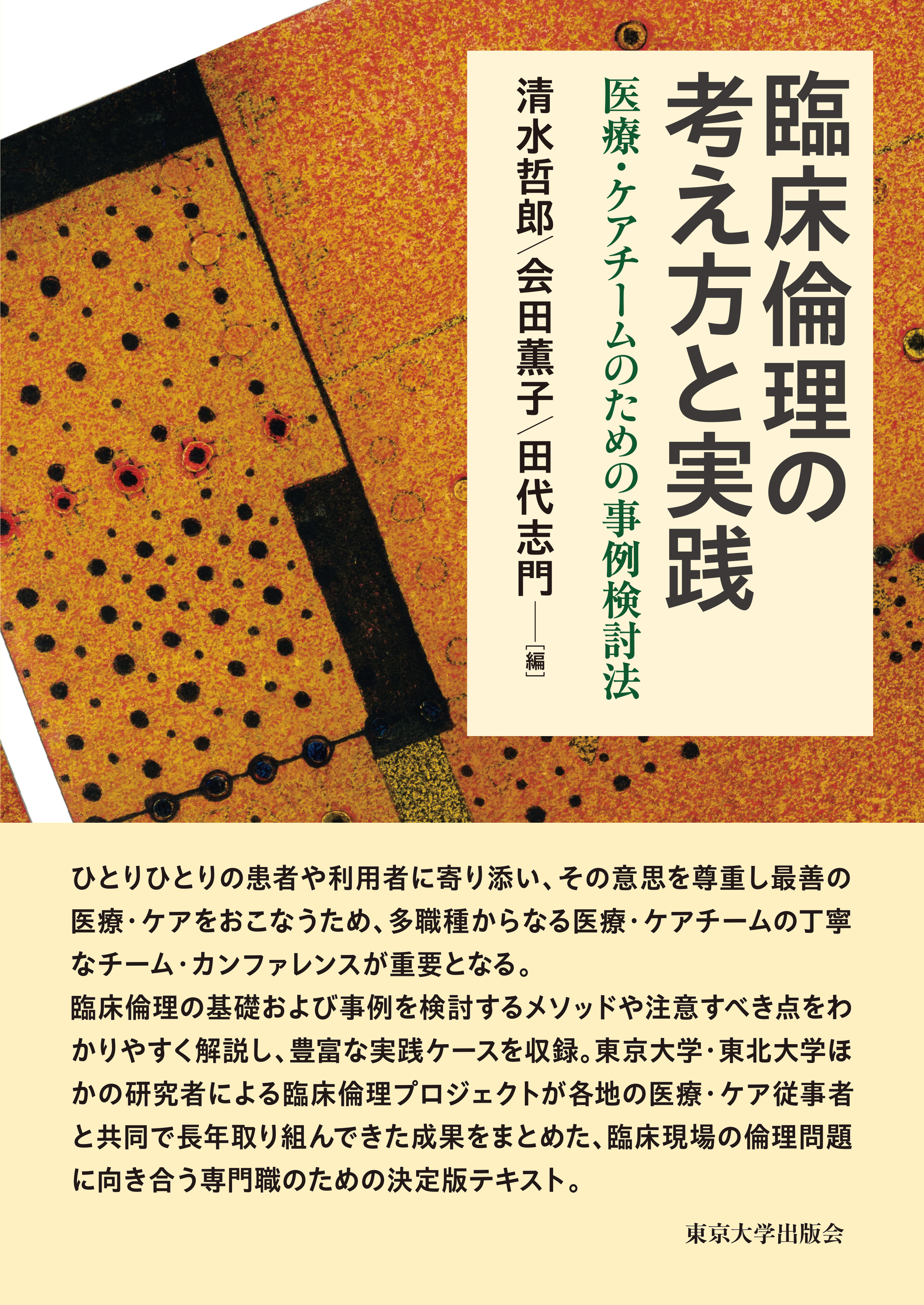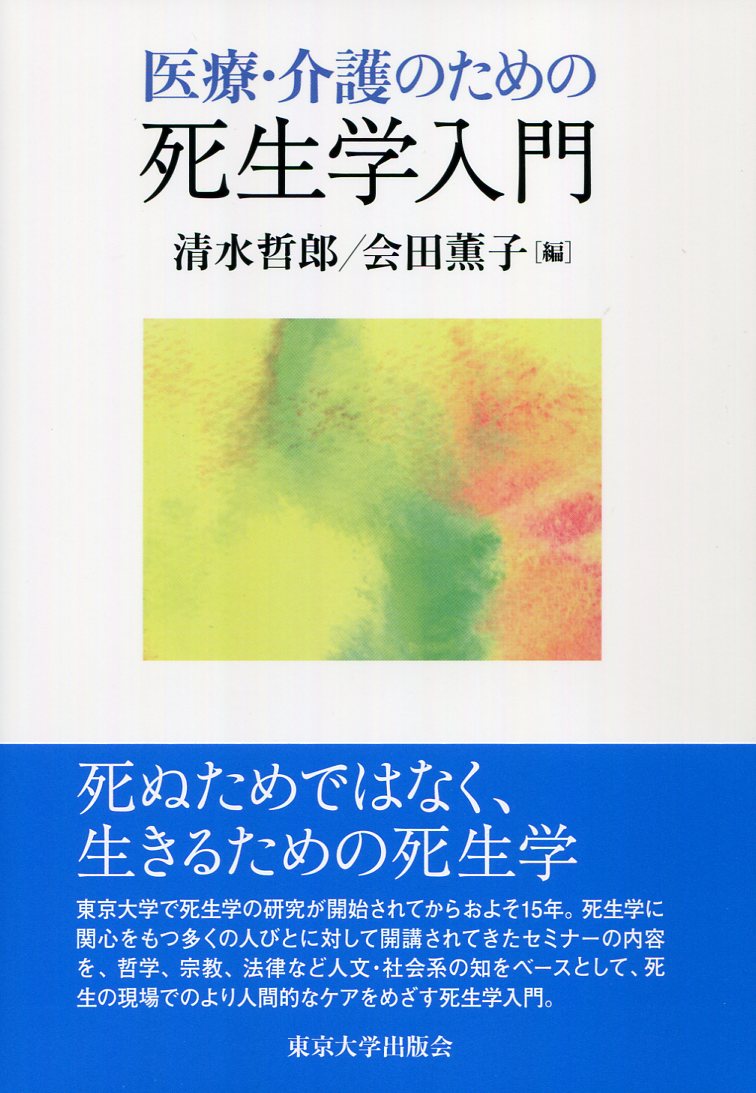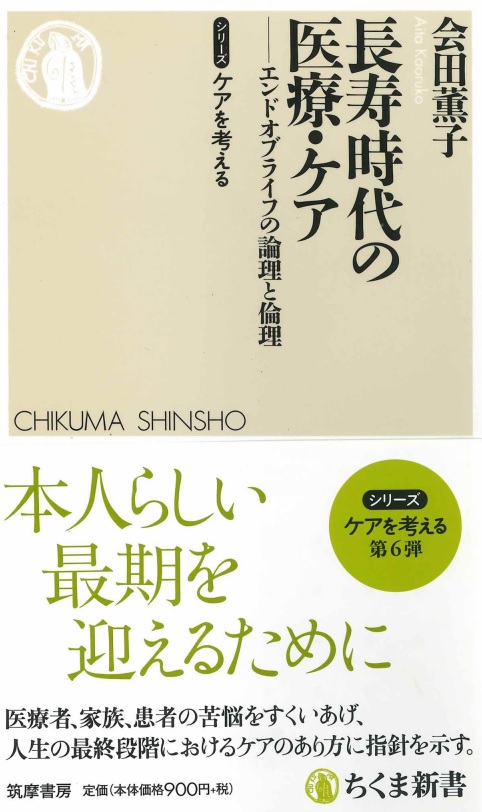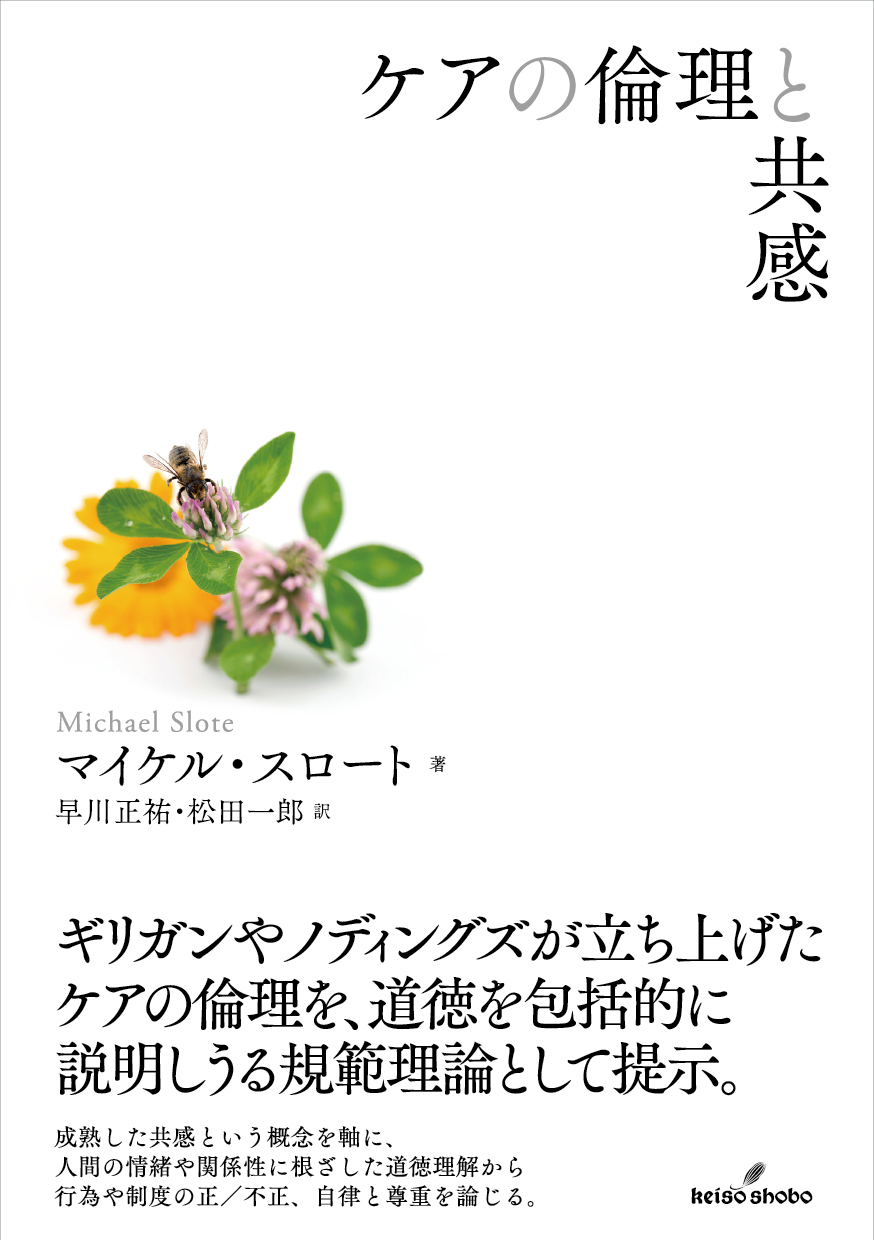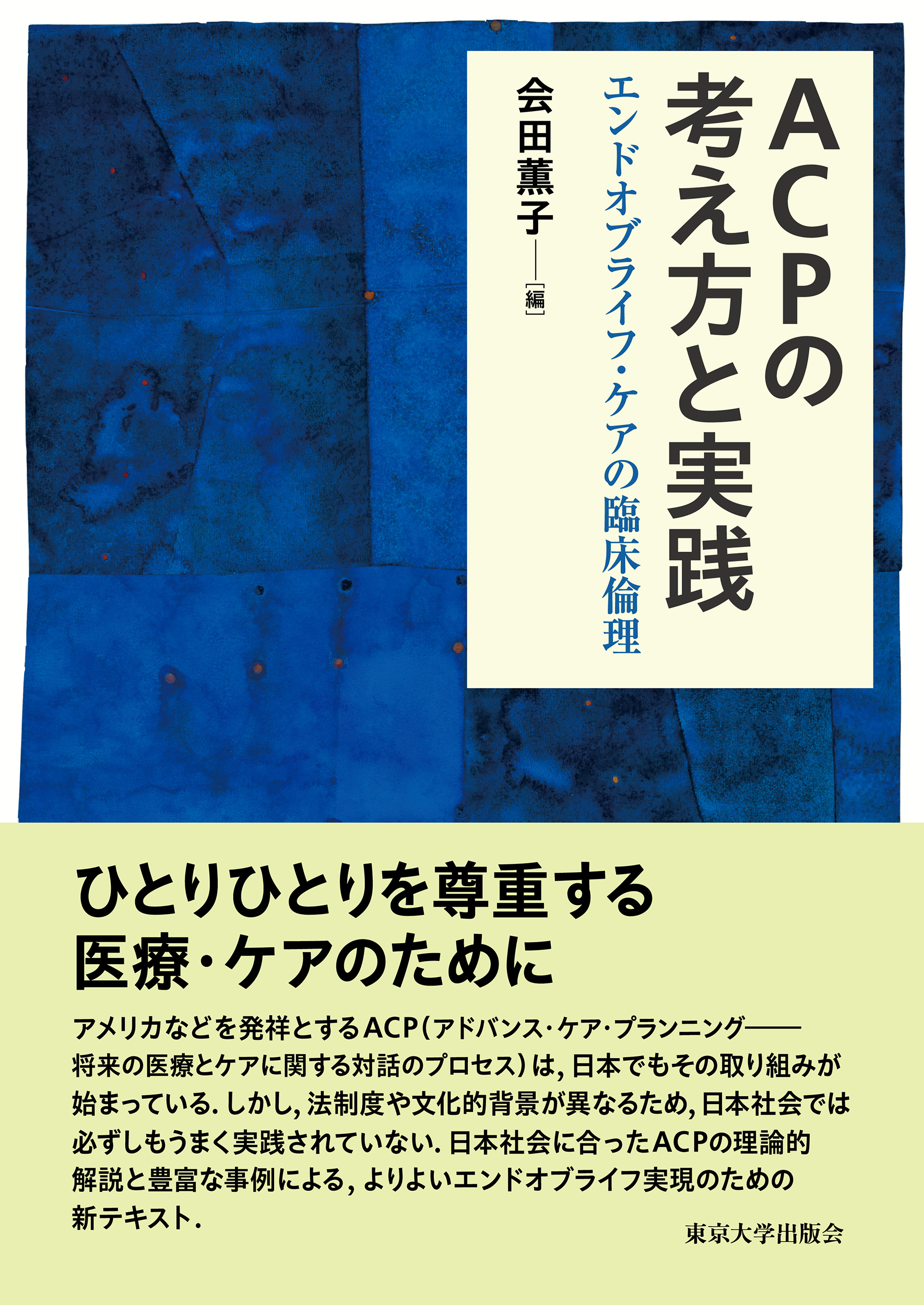
Title
ACP no Kangaekata to Jissen (Theory and Practice of Advance Care Planning - Clinical Ethics in End-of-Life Care)
Size
210 pages, B5 format
Language
Japanese
Released
April 01, 2024
ISBN
978-4-13-062425-1
Published by
University of Tokyo Press
Book Info
See Book Availability at Library
Japanese Page
As medical technology has advanced and treatment options have increased, advance care planning (ACP) is recommended so that everyone can receive medical care in line with their values until the end of life. ACP is a process of dialogue between the patient/family and medical and care teams regarding future medical care.
However, ACP is fraught with difficulties in clinical practice. This may be owing to social and cultural backgrounds. First, the ACP was introduced in Japan as an imitation of English-speaking countries, such as the United States. However, the ACP in the United States is premised on the culture and legal system of the American society. Japan does not share this premise. Therefore, it is difficult to do the same as in the United States because decision making depends on culture and institutions.
This book incorporates the knowledge of Japanese ethics and explores the ideal form of clinical ethics in Japan based on the characteristics of the Japanese way of thinking regarding decision-making. For example, we refer to the ideas of Tetsuro Watsuji, who represented the ethics of Japan in the 20th century concerning decision-making. We attempt to explain why the individualistic and liberal decision-making methods of the United States are often unsuitable for clinical practice in Japan.
It is also important to recognize the differences in the legal systems of English-speaking countries and Japan. In these countries, prior to the ACP, advance directives consisting of living wills and surrogate decision makers were enacted into the law. However, Japan does not have a legal system for advance directives. According to awareness surveys conducted by Japan’s Ministry of Health, Labor, and Welfare every five years, the number of people in favor of legislation is still small. The presence or absence of this system directly impacts ACP practices. Therefore, if you try to apply the ACP of other countries in the Japanese system, confusion and problems will arise in clinical practice.
This book details how ACP should be implemented, with an emphasis on the process of dialogue between the patient/family and the medical and care team. In this dialogue process, we believe that if medical and care teams think together with patients and their families, and respond with an attitude of sharing concerns, a relationship of trust will gradually build, a source of satisfaction regarding the content of the decision will be made, and the ethical validity of the decision will be ensured.
Decision-making support in medical care, including ACP, is part of the clinical ethics in academic disciplines. Previously, clinical, medical, and bioethics in Japan generally relied on British and American textbooks and papers. However, this book incorporates knowledge of Japanese ethics, which makes it unique. We hope that this book will be used as a familiar reference that suits the way of thinking of Japanese people in clinical settings, and that it will contribute to the practice of ACP and be the beginning of the construction of clinical ethics that are conscious of Japanese ethics.
(Written by AITA Kaoruko, Project Professor, Graduate School of Humanities and Sociology / 2024)



 Find a book
Find a book


